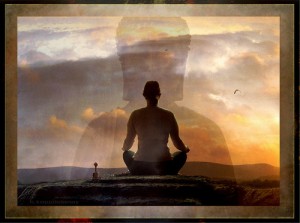
Photo by h.koppdelaney
Driven by a desire to seek greater meaning, I left the corporate world seven years ago to start a new life. The two significant goals of this life shift were to start the journey of working on my own inner self and to support others in theirs. Although I face new challenges every day, it has been a liberating and rewarding experience.
The last seven years have been rather instructive for me. I have learnt more life lessons during this time than the preceding four decades of my life. Not that I was presented with particularly unique circumstances, but perhaps I was more mindful of learning from them this time around.
As I became a more conscious observer of my own thoughts and actions, I noticed that merely changing my life situation did not automatically alter my long-held beliefs and behavior patterns. If I am an intense person, it didn’t matter whether I was focused on my career in the past or my efforts with meditation or self-improvement now – I always run the risk of being obsessed with my goals.
Seven lessons
Through my ongoing efforts at developing greater self-awareness and from my experiences of working with individuals from diverse backgrounds, I have been learning a number of lessons. Here are the seven themes that stand out.
1. Reflection lays the foundation for positive change
For us to experience any positive change, we need to actively create moments of reflection in our regular life. Ordinarily, in our fast-paced society, it is natural to get consumed in our daily pursuits and lose sight of our bigger life-goals.
Creating regular moments of reflection allows us to become more self-aware, understand our emotional triggers and examine our inner beliefs and motivations. This in turn lays the foundation for positive behavior changes to happen. With persistence, we discover our deeper purpose in life that not only releases energy that gets tied up in our trivial pursuits, but also becomes the beacon that guides our life towards a meaningful path.
I have found meditation to be of great significance in this area. Developing a regular practice of any form of meditation that you are familiar with or are planning to learn can be very supportive in your journey of change. Besides, reading relevant personal growth books/ articles and taking regular time out to pause and reflect on the direction your life is taking is very useful.
2. Balance is the essence of life
Gautama Buddha was born rich but soon realized that material possessions did not make one happy. He then became an ascetic and focused on spiritual growth through sacrificing all the comforts of life. After spending six years of persevering with this approach, he felt that this too did not make him truly happy.
He analyzed that both these approaches, seeking only materialism or only spirituality, were extreme steps and hence flawed. It was during these reflections that once sitting by a river, he had a deep realization about the need for balance when he heard a lute player in a passing boat and recognized that for the lute to produce the beautiful and harmonious sound, the lute string needed to be tuned just right- neither too taut nor too slack.
Most of us are either born or gravitate towards clear preferences in our way of being – either being too aggressive or too calm, too ambitious or too relaxed, too controlling or too lax, self-indulgent or self-deprived, and so forth. Being balanced is the key to a healthy and meaningful life and every variation to that balance disturbs our physical and mental equilibrium.
Like the Buddha’s Middle Way, in our life, effort must be matched by rest, receiving by giving, physical comfort by mental growth and material progress by spiritual. When we can find appropriate balance in our own state of being, life is more effortless and harmonious.
I preferred avoiding both confrontation and saying No, I am more assertive now; I was naturally more aligned to giving, I am more open also to receiving now; I was driven by ambition, I am learning to be detached from the results now; I was quite competitive all along, I am far more collaborative now.
3. Attachment is the primary source of pain
The single largest cause of suffering in our life are our attachments. You can test it yourself. Whenever you feel any kind of physical or emotional pain, ask yourself what all are you attached to that maybe making the current experience painful.
Attachment to results and success creates disappointment during setbacks, attachment to our children’s future is a constant source of anxiety; attachment to how we want them to be sooner or later leads to emotional pain; attachment to our physical bodies creates fear and so forth.
We get invested in a singular outcome, coming from the ignorant belief that one outcome is necessarily better than the other; the thought that it is indeed possible to create only favorable experiences in our life. It closes our mind to other possibilities and then we find it difficult to accept the alternate reality – resulting in some form of distress.
4. Letting go is challenging but rewarding
We need to learn to let go. This requires becoming more aware of our true-identity and our deeper purpose in life. As we stay connected with such thoughts, we recognize the transient nature of all our experiences. That greatly helps in maintaining equanimity in all our circumstances – favorable or otherwise. This supports leading a more joyful life.
Our modern society lays a great deal of emphasis on human will and given my type A instincts, I used to thrive on it. It’s only in recent years that I have learnt to fully appreciate the magic of letting go. So many experiences at work and outside have manifested in my recent life that have very little to do with my personal design and way more an outcome of letting go; and letting the universe propel me forward in the most optimal way. Whether it is the way my coaching practice has evolved or the quality of personal life I have experienced.
5. Abundance is a state of mind
There was a time when I earned a few multiples of what I earn today and yet I felt a certain amount of lack – as if it was never enough. I have a greater sense of abundance now. What has changed is not what I physically have but my relationship to what I have. This is a direct outcome of my working with my inner self – making me feel far more secure, confident and fulfilled within.
The other related aspect that I have found powerful is learning to be grateful. Given my perfectionist traits, I am usually more drawn to observing what’s missing rather than appreciate all that is going well. Learning to alter that equation and being thankful of all the blessings that we do have adds to our sense of contentment and inner peace.
Also, being thankful for what we have makes us more open to receiving further. In fact, the more you express gratitude for what you have, the more you will have, to express gratitude for. As we pay greater attention to the beauty and miracles of our existence, the more they grow in our life.
6. Direction is more important than distance
In our achievement-oriented world, more is often synonymous with better – the underlying belief that the person with more is likely to be happier; that more success, more money equates to greater happiness. Further, the capitalistic philosophy of ‘winner takes all’ and its tempting, instant and disproportionate rewards make us constantly yearn for more. I had been well exposed to that philosophy in the past.
I now realize that a big chunk of our restlessness for ‘more’ stems from lack of a clear purpose in our life. We customarily correlate the notion of fulfilling our personal potential to how much further we can get in our profession, financial status, or public recognition – and that leads us to a treadmill of activity but not necessarily to inner fulfillment.
Rather than struggling to relentlessly climb the ladder (career or social), it is more important to determine whether our ladder is leaning against the right wall in the first place. It is important to recognize that we can start the journey towards discovering and satisfying our potential only by working on our inner self and by setting the direction of our life in line with our personal purpose.
7. Personal growth is a life-long journey
I am so fortunate to have been exposed to the world of personal and spiritual growth. Not only is it a personal passion for me, but also my vocation and profession. It has afforded me the privilege of being able to support numerous others in their journeys of change.
Having said that, I have also come to realize that it is a patient journey, which can take multiple lifetimes. After I had made some significant personal changes and started to enjoy their benefits, I was beginning to become complacent about my progress. Life is an amazing teacher and a recent brush with an injury brought me face to face with my fears and attachments so along with some valuable lessons learnt in life, I also renew my commitment to my own personal purpose.
As St. Francis de Sales said about undertaking this journey, “What we need is a cup of understanding, a barrel of love, and an ocean of patience.”











 What Are You More Afraid Of: Failure Or Rejection?
What Are You More Afraid Of: Failure Or Rejection? Meditation: An Introduction
Meditation: An Introduction Meditation II: Power of Visualization
Meditation II: Power of Visualization Breaking Free From Your Inner Destiny!
Breaking Free From Your Inner Destiny! Why NGO Leaders Are Not Necessarily Happy
Why NGO Leaders Are Not Necessarily Happy
Your journey almost sounds like mine though I may need many more life times to complete my inner journey. I enjoy your writings as they teach me lot of things . Please keep writing.
I really liked the Lesson 5 Abundance is a state of mind. In this material world, how muchever one may have, wanting to have more and more is the problem. By counting what we have than what we dont have , sense of confidence and security naturally comes to us.
Amazing. You have been so successful at detaching yourself from material life and the day-to-day madness. Hope I can achieve a fraction of the same…Rajesh Bhojani
Very inspiring Rajiv. As always.
Thank you for all your posts.They have certainly brought new perspectives in our lives – made us look anew, brought in introspection, broken rigidity in long held beliefs, taught respond vs react,on how to relate to people ‘in the now’ as against reacting based on ‘past biases’,that discovering ‘core’ as another purpose in life can be more rewarding and enriching.
Glad this blog came about in addition to all your articles in newspapers/magazines.
Best wishes for recovering good health and hope more articles emerge.
Truly said that the journey will take several lifetimes. Unfortunately, the journey begins more often than not, after half the lifetime is over. The education system can help hasten this by introducing these thought processes into our school system thereby triggering this journey much earlier. This would also make the world a better place to live in.
Rajiv, keep going with your new discoveries and sharing them with us. I feel very proud of you, and what all you are contributing.
Thanks a lot, my friend.
As the now popular refrain goes “It is not the situation that is important, rather your individual reaction is (more relevant)”. Priorities, balances, listening (equally to inner self and others) are always in good order. Personally I would personal fitness to Rajiv’s list, since good round-the-clock physical health supports great mental health. Rajiv, hats off on getting the 7 year itch into ‘the blog to remove many clogs’ for everyone.
It is an amazing article! Thank you so much. Each of the point in lesson 7 is so apt and I could relate to it very well. I am keen to attend some session/interact with you.
Agree with each of the 7 ….so well captured Rajiv – as always.
Have noted these down at my desk for constant reminders …..Thanks for sharing your thoughts and learnings.
Rajiv..the post is simply great…just a small observation on point 5. Abundance is a state of mind..I know it is just the matter of word choices..but referring to it as.. “Abundance is a state of being” look more appropriate as often mind is linked with the lack…which is quite opposite of the attribute we are referring to..
Interesting perspective Praveen, thanks for sharing!
In these days of rat race .even if you reach at the top you are still a rat if you find satisfaction at what you have achieved with Profound thank to the Almighty at the end of the day you count his blessing because that is what is going to give you eternal peace